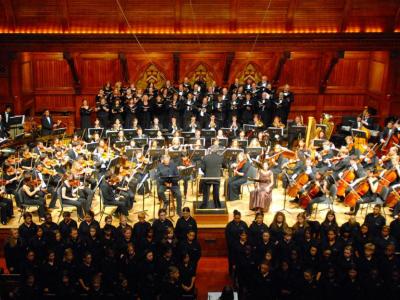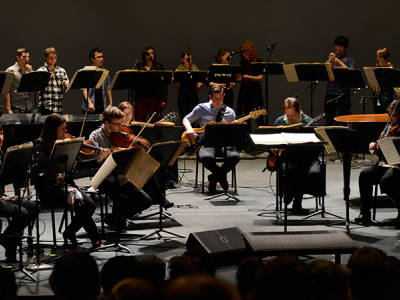What does a Music Librarian do?
Much like traditional librarians, music librarians organize, catalogue, and maintain collections; select rare materials for acquisition; oversee preservation processes; answer reference inquiries; and teach people how to interact with the library. They may also plan exhibits and concerts, as well as organize lectures, classes, and other public programs.
A broad education in music and the liberal arts is an essential foundation for working as a music librarian, as is sufficient knowledge of German and at least one Romance language.
Beyond these essential tasks, music librarians perform a number of additional duties based on the institutions where they work and—to a certain extent—their own interests. Music librarians employed by a major symphony, for example, oversee a collection of orchestral scores and other performance materials specific to the ensemble. Those who work at a conservatory's or university's music library devote part of their workday to ordering and distributing materials to be used by student ensembles, opera workshops, and other campus performing groups. Military librarians prepare music for Army, Navy, Air Force, Marines, and Coast Guard band performances, edit program notes, and maintain historic archives for the military's many music ensembles.
Regardless of employer, a music librarian might also participate actively in music scholarship, pursuing their own research and writing reviews for journals, or join committees involved in discussing professional issues such as electronic information storage and cataloguing standards.
At a Glance
A broad education in music and the liberal arts is an essential foundation for working as a music librarian, as is sufficient knowledge of German and at least one Romance language. Additionally, employers typically require a master's degree in a field like library or information science, although a degree in a musical field—such as composition—can't hurt. Many music librarians start out as student assistants or interns before pursuing the career full-time.
With time and experience, some music librarians move into administrative positions within their organizations, while others pursue educational activities or focus on research and publishing.
Music librarians are employed by research libraries; university, college, and conservatory libraries; public libraries; radio and television libraries; music publishers; music societies and foundations; orchestras and ensembles; and all five branches of the U.S. Armed Forces. Music librarians in the military must be enlisted soldiers.
Aspiring music librarians can get a feel for the job by volunteering or working part-time at a campus music library.
- Library science
- Information science
- Archive management
- Foreign languages
- Music history
- Music notation
- Organizational skills
Intellectual curiosity, attention to detail, and stellar organizational skills are essential qualities for a music librarian. Although some music librarians work entirely behind the scenes in fields such as acquisition and research, those who interact regularly with the public are well-served by excellent communication skills.
Music librarians mostly work during conventional business hours and enjoy a regular schedule. Although music librarians might spend much of a typical day working at a desk, their duties also keep them on their feet: circulating around the library, preparing for concerts and events, and traveling to conferences and conventions.







